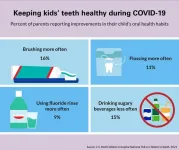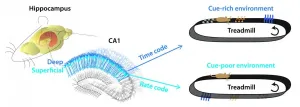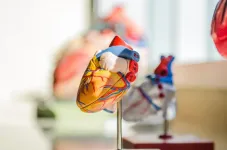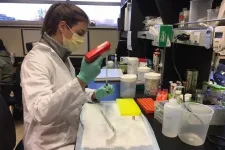(Press-News.org) ANN ARBOR, Mich. - A third of parents say the COVID-19 pandemic has made it difficult to get dental care for their children, a new national poll suggests.
But some families may face greater challenges than others. Inability to get a dentist appointment during the pandemic was three times as common for children with Medicaid versus those with private dental coverage, according to the C.S. Mott Children's Hospital National Poll on Children's Health at Michigan Medicine.
"Regular preventive dental care helps keep children's teeth healthy and allows providers to address any tooth decay or dental problems before they become more serious," says Mott Poll co-director Sarah Clark, M.P.H.
"Our findings highlight how the pandemic may have disrupted families' dental care and exasperated potential disparities among those with insurance barriers."
Some parents attempted to continue their child's regular dental check-ups, only to find a lengthy wait time for an appointment, Clark says. Others found that the dental office had closed or reduced patient visits to urgent cases.
But the Mott Poll report revealed a silver lining too: One in four parents described improvements in how their children are taking care of their teeth and gums at home during the pandemic.
The nationally representative report is based on responses from 1,882 parents with at least one child ages 3-18.
Clark speaks more about the Mott Poll findings and dental care recommendations for families below:
1 in 3 Parents Cite Challenges Getting Preventive Dental Care
The American Association of Pediatric Dentists recommends that children receive regular teeth cleaning and exams every six months, starting when their first tooth comes in. Check-ups provide a consistent opportunity to identify and treat tooth decay, to apply protective treatments like sealants and fluoride varnish, and to educate parents and children about good dental hygiene.
But to protect patients and staff, some dental offices have changed or limited their operations to limit the spread of COVID-19.
Sixty percent of parents in the poll have tried to get preventive dental care for their child since the pandemic started. While most got an appointment in the usual time frame, 24% experienced a delay, and 7% could not get an appointment at all.
Overall, one in three parents (32%) feel COVID-19 has made it harder to get preventive dental care for their child.
Clark says a challenge for parents during the pandemic has been keeping up to date on the many changes in schedules and operations, from schools to stores to health care providers.
"Parents who were unable to get a dental appointment for their child should check back with their regular dentist, as lengthy wait times or patient restrictions may have changed," she says.
COVID-19 Safety Concerns May Delay Care
This Mott Poll suggests that some parents are worried about the risk of COVID-19 exposure during a dental visit and are delaying making a dental appointment for their child.
The majority of parents who didn't attempt to schedule preventive dental care for their child during the pandemic cited COVID-related reasons. Some 40% don't want to risk getting exposed, while 23% say the dentist office was closed or only seeing urgent patients.
Other parents say they did not call for an appointment because their child wasn't due for dental care or wasn't having any dental problems.
Most parents (67%) believe it's safe for their child to get dental care at this point in the pandemic, while 14% feel it's unsafe and 19% are unsure.
Clark recommends parents who are concerned about COVID exposure to contact their child's dentist to learn about what types of precautions have been put in place. These may include patient and staff screenings and temperature checks, and having patients wait in their cars rather than the waiting room.
"It may be helpful for dental providers to be proactive in reminding parents about the importance of regular dental check-ups for children," she says. "Reminder notices and website updates outlining changes to practice operations may also help more parents feel safe bringing children in for their visit."
Insurance Barriers Contribute to Dental Health Accessibility
Barriers to dental appointments occurred more frequently for children with Medicaid dental coverage compared to those with private dental insurance.
Among parents who tried to get their child in for preventive dental care, 15% of parents of children with Medicaid dental coverage reported not being able to get an appointment, compared to 4% of those with private dental insurance and 5% who had no coverage.
Clark notes that even outside the pandemic, these children often have difficulty finding a dentist, as many providers don't accept Medicaid payment. Some children receive preventive dental services through school or public dental clinics, but those services have decreased during the pandemic.
Among parents who didn't try to schedule a preventive dental appointment, cost was the reason for 23% of parents who lacked dental insurance, compared to very few of those with private or Medicaid coverage.
"Insurance barriers may lead to unequal opportunities for families to receive dental care critical to keeping their children's teeth healthy," Clark says.
1 in 4 Parents See Improvements in Child's Oral Health Habits
An unexpected finding from the Mott Poll report was that a fourth of parents reported improvements in their child's oral health habits during the pandemic.
This included more frequent brushing (16%), flossing (11%) and use of fluoride rinse (9%), and less drinking of sugary beverages (15%).
Overall, 28% of parents say their child has made at least one positive change, including more parents of children with Medicaid (37%) or no dental coverage (32%) compared to private dental insurance (24%).
"We were pleased to find parents describing positive changes in how their children are taking care of their teeth at home," Clark says. "Daily brushing and flossing and avoiding sugary drinks are important ways to prevent tooth decay.
"Parents whose child is not getting regular dental check-ups should take extra steps to improve daily oral health habits, particularly if regular dental care has been delayed or disrupted," she adds.
INFORMATION:
We find routes to destination and remember special places because there is an area somewhere in the brain that functions like a GPS and navigation system. When taking a new path for the first time, we pay attention to the landmarks along the way. Owing to such navigation system, it becomes easier to find destinations along the path after having already used the path. Over the years, scientists have learned, based on a variety of animal experiments, that cells in the brain region called hippocampus are responsible for spatial perception and are activated in discrete positions ...
Lipids are the building blocks of a cell's envelope - the cell membrane. In addition to their structural function, some lipids also play a regulatory role and decisively influence cell growth. This has been investigated in a new study by scientists at Martin Luther University Halle-Wittenberg (MLU). The impact of the lipids depends on how they are distributed over the plasma membrane. The study was published in "The Plant Cell".
If plant cells want to move, they need to grow. One notable example of this is the pollen tube. When pollen lands on a flower, the pollen tube grows directionally into the female reproductive organs. This allows the male gametes to be delivered, so fertilisation can occur. The pollen tube is special ...
An international team of scientists has sequenced the genome of a capuchin monkey for the first time, uncovering new genetic clues about the evolution of their long lifespan and large brains.
Published in PNAS, the work was led by the University of Calgary in Canada and involved researchers at the University of Liverpool.
"Capuchins have the largest relative brain size of any monkey and can live past the age of 50, despite their small size, but their genetic underpinnings had remained unexplored until now," explains Professor Joao Pedro De Magalhaes, who researches ageing at the University of Liverpool.
The researchers developed and annotated a reference assembly for white-faced ...
Aspirin should be favoured over warfarin to prevent blood clotting in children who undergo a surgery that replumbs their hearts, according to a new study.
The research, led by the Murdoch Children's Research Institute (MCRI) and published in The Journal of Thoracic and Cardiovascular Surgery, will have implications for clinicians when prescribing blood thinning medications after Fontan surgery, a complex congenital heart disease operation redirecting blood flow from the lower body to the lungs.
The Fontan procedure is offered to children born with severe heart defects, allowing the child to live with just one pumping heart chamber ...
In a SWOG Cancer Research Network trial that put three targeted drugs to the test, the small molecule inhibitor cabozantinib was found most effective in treating patients with metastatic papillary kidney cancer - findings expected to change medical practice.
These findings will be presented at ASCO's virtual 2021 Genitourinary Cancers Symposium on Feb. 13, 2021 at 1 p.m. ET. The findings will be simultaneously published in The Lancet.
There are currently no effective treatments for metastatic papillary kidney cancer, or metastatic pRCC, a rare subtype of kidney cancer. One study of 38 patients found that the average survival ...
Lenvatinib plus pembrolizumab yields better overall survival than single-agent sunitinib when given as first-line therapy in untreated patients with metastatic kidney cancer
The combination also improved progression-free survival and overall response rate
BOSTON - Patients with advanced kidney cancer, who received a targeted drug combined with a checkpoint-blocker immunotherapy agent had longer survival than patients treated with the standard targeted drug, said an investigator from Dana-Farber Cancer Institute, reporting results from a phase 3 clinical trial.
The survival benefit demonstrates that an immune checkpoint inhibitor together with a targeted kinase inhibitor drug "is important ...
A test that monitors blood levels of DNA fragments released by dying tumor cells may serve as an accurate early indicator of treatment success in people in late stages of one of the most aggressive forms of skin cancer, a new study finds.
Led by NYU Grossman School of Medicine and Perlmutter Cancer Center researchers, the investigation looked at adults with undetectable levels of freely circulating tumor DNA (ctDNA) four weeks into drug treatment for metastatic melanoma tumors that cannot be removed surgically (unresectable). The study showed that these patients, all of whom had common genetic changes (BRAFV600 mutations) linked to cancer, were living ...
Peer-reviewed / Review, Survey and Opinion piece
To ensure an effective global immunisation strategy against COVID-19, vaccines need to be produced at scale, priced affordably, and allocated globally so that they are available where needed, and successfully rolled out.
Review of evidence includes a comparison of 26 leading vaccines on their potential contribution to achieving global vaccine immunity, and a new survey of COVID-19 vaccine confidence in 32 countries.
Having new COVID-19 vaccines will mean little if people around the world are unable to get vaccinated in a timely manner. ...
A new study from Washington University School of Medicine in St. Louis demonstrates that a liquid biopsy examining blood or urine can help gauge the effectiveness of therapy for colorectal cancer that has just begun to spread beyond the original tumor. Such a biopsy can detect lingering disease and could serve as a guide for deciding whether a patient should undergo further treatments due to some tumor cells evading an initial attempt to eradicate the cancer.
The study appears online Feb. 12 in the Journal of Clinical Oncology Precision Oncology, a journal of the American Society of Clinical Oncology.
While a few liquid biopsies have been approved ...
FOR IMMEDIATE RELEASE
Scientists have yet to answer the age-old question of whether or how sound shapes the minds of fetuses in the womb, and expectant mothers often wonder about the benefits of such activities as playing music during pregnancy. Now, in experiments in newborn mice, scientists at Johns Hopkins report that sounds appear to change "wiring" patterns in areas of the brain that process sound earlier than scientists assumed and even before the ear canal opens.
The current experiments involve newborn mice, which have ear canals that open 11 days after birth. In human fetuses, the ear canal opens prenatally, at about 20 weeks gestation.
The findings, published online Feb. 12 in END ...





